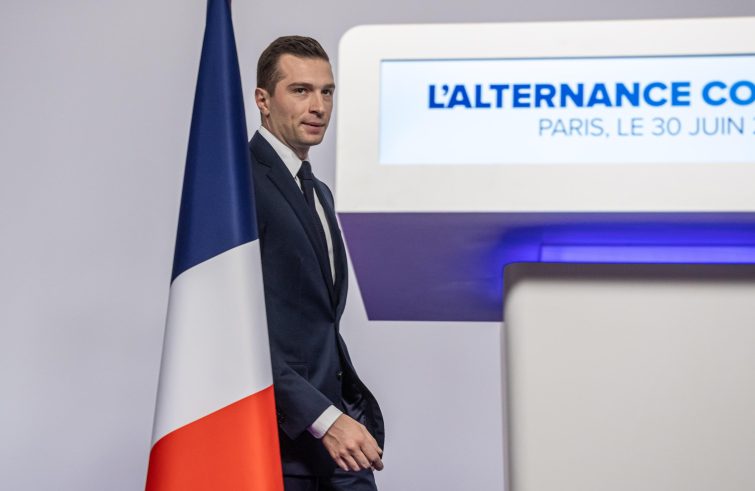
“Macron is already over. Can anyone stop Le Pen?” Without showing much prudery, just a few hours after the announcement of the results of the first round in France, Politico.eu offered its assessment with a view to the second round scheduled for 7 July. As the respected newspaper concisely notes, “the president must decide whether to drop his candidates and back the left to prevent the far right from taking power in France.” The president’s election gamble has failed, personal humiliation, a movement – Macron’s – nearing its demise, are some of the expressions used. And, if next week’s second-round “delivers a parliamentary majority for the National Rally — and forecasts suggest it’s possible — France will be in uncharted waters: the country would be governed, at least in part, by politicians who made their names sympathizing with Vladimir Putin while vowing to rip up the European Union, wage war on migration and quit NATO.”
The Swedish daily ‘Aftonbladet’ comments on this international political issue, noting that the French vote “concerns the whole of Europe” since “France is a pillar not only of NATO but also of the EU. Given the tensions – and divisions – in the country, the results of the second round of the election on 7 July could trigger not only parliamentary chaos but also massive protests. The Swedish daily Dagens Nyheter writes:
“Emmanuel Macron has gambled and lost. This has already become clear after the first round of the election”.
“He needs to show a different kind of leadership than he showed last month if he wants to avoid going down in history as the president who brought the National Rally to power.”
Across France’s eastern border, Germany, which has seen the rise of the far-right AfD party in recent weeks, is monitoring developments in France with concern. “It took decades for Le Pen to reach the gates of power in France. The German left and the Greens have come up with some surprising explanations after the elections in their neighbouring country. They will lead the AfD to successes similar to those of the National Rally in the national elections,” wrote Die Welt online on Monday. The German newspaper further points out that “France’s political uncertainty has repercussions for the country’s high-income bracket.” Indeed, “the number of French requests to Switzerland to protect their assets has increased”. On the other hand, in an unsparing assessment of Macron, Frankfurter Allgemeine writes:
“Macron’s strategic ideas have always been questioned, even though he has a considerable fan base, especially in Germany”.
But “a president who undermines his parliamentary majority without needing to do so cannot hope for a favourable mention in history books.”
The Spanish newspaper El Pais reports on these hours of agitation over the electoral strategy for next Sunday, hours in which “the suspicion provoked by the radical left of France Insoumise, and in particular its leader, Jean-Luc Mélenchon, is one of the main obstacles to the unification of French political forces in a so-called republican front”, which would act as a “cordon sanitaire of the French political forces” against the far right.
Across the Channel, former Libération correspondent Pierre Haski comments on the first-round results in British daily newspaper The Guardian: “What went wrong? One can obviously wonder why Macron decided to gamble the country’s future on a snap election he had no chance of winning. We can also wonder why this country, with its many assets, has generated enough anger and resentment among its citizens to produce an election result that is more likely to damage its economy and social cohesion than solve real problems.
“We can also question a French political elite that was so blind it let the far right prosper in large corners of a society that felt forgotten and despised.”
“All of this is true, and is being discussed everywhere now in France, among friends, colleagues and in our family circles. Everyone is looking in the mirror and wondering what to do next Sunday in the second round.” It concludes: “We’ll have to learn to live in a divided land where the National Rally controls small towns and vast areas of rural France, while the ‘reasonable’ people have the upper hand in major cities including Paris. This is a real tragedy.”










